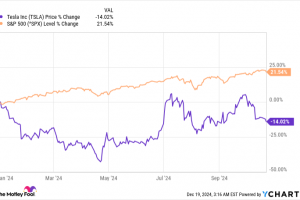
HONG KONG (AP) — Asian stocks were mixed on Friday as Chinese markets declined as investors await a key briefing about the details of the upcoming stimulus plan this weekend.
U.S. futures rose while oil prices were lower.
Chinese stocks fell in morning trading on Friday. The Shanghai Composite lost 1.6% to 3,249.14, and the CSI 300 Index, which tracks the top 300 stocks traded in the Shanghai and Shenzhen markets, gave up 1.9%.
Hong Kong markets were closed Friday for a public holiday. On Tuesday, the index dropped more than 9%, marking its worst loss since the 2008 global financial crisis.
All market attention was on a briefing China’s Ministry of Finance has scheduled for tomorrow, where it is expected to unveil long-anticipated fiscal stimulus plans. Earlier this week, details of economic stimulus plans from Beijing officials disappointed the markets, as many had hoped that the new fiscal policies would follow the steps of the previous announcements made in late September aimed at reviving the struggling property market and boosting economic growth.
Elsewhere, South Korea’s central bank cut its benchmark interest rate by 25 basis points to 3.25% on Friday, signaling a shift to an easing cycle intended to stimulate economic growth. This is the Bank of Korea’s first rate cut since 2020, which comes after a contraction in gross domestic product in the second quarter, along with an inflation rate in September that fell below the central bank’s target of 2%.
The Kospi in Seoul added 0.4% to 2,610.64.
Australia’s S&P/ASX 200 dipped 0.1% to 8,218.40.
On Thursday, U.S. stocks edged back from earlier records after reports showed inflation was a touch warmer last month than expected and more workers filed for unemployment benefits last week.
The S&P 500 slipped 0.2% to 5,780.05, and the Dow Jones Industrial Average dipped 0.1% to 42,454.12 after setting an all-time high the day before. The Nasdaq composite edged down by 0.1% to 18,282.05.
Stocks had stormed to records in large part on excitement about easing interest rates, now that the Federal Reserve is cutting…
..






